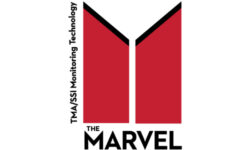JetBlue to Test Self-Boarding Program Using Facial Recognition
JetBlue announced Wednesday the goal of the program is to speed up the boarding process while improving national security.

JetBlue is partnering with U.S. Customs and Border Protection and biometrics solutions provider SITA for the pilot program on flights between Boston and Aruba starting June 12.
NEW YORK – JetBlue (NASDAQ: JBLU) will deploy biometrics technology at Boston’s Logan Airport to test a self-boarding process in which paper tickets are replaced with facial recognition scans.
The process calls for passengers to have their photos taken by a custom-designed camera, instead of handing over a paper ticket to a gate agent. The images are then transmitted to a U.S. Customs and Border Protection (CBP) database of passport and visa photos for comparison, JetBlue announced Wednesday.
If the photos match, passengers are directed to board their flight. The three-month, opt-in pilot program will begin June 12 on flights from Boston to Aruba’s Queen Beatrix International Airport.
SITA, a global provider of IT, communications and border security solutions, is providing the technology and connectivity to perform facial capture and integration with the CBP database as well as integration with JetBlue’s departure control system.
JetBlue said the goal is to speed up the boarding process while improving national security.
READ NEXT: United Airlines Begins Automated Screening Lanes Checkpoint at Newark Airport
“We hope to learn how we can further reduce friction points in the airport experience, with the boarding process being one of the hardest to solve,” Joanna Geraghty, executive vice president customer experience, JetBlue, said in a statement. “Self-boarding eliminates boarding pass scanning and manual passport checks. Just look into the camera and you’re on your way.”
Delta is also working to incorporate biometric data into airport procedures. The Atlanta-based airline announced it will begin testing a program that allows SkyMile members to use their fingerprints to check bags and board flights at Ronald Reagan Washington National Airport.
In addition, the company is installing a self-service bag drop kiosk at Minneapolis-St. Paul International Airport, which uses facial recognition technology to verify passengers’ passports. The process eliminates the need for passengers to check bags with an agent.
“We’re rapidly moving toward a day when your fingerprint, iris or face will become the only ID you’ll need for any number of transactions throughout a given day,” Gil West, Delta’s COO, said in a statement.
If you enjoyed this article and want to receive more valuable industry content like this, click here to sign up for our FREE digital newsletters!

Security Is Our Business, Too
For professionals who recommend, buy and install all types of electronic security equipment, a free subscription to Commercial Integrator + Security Sales & Integration is like having a consultant on call. You’ll find an ideal balance of technology and business coverage, with installation tips and techniques for products and updates on how to add to your bottom line.
A FREE subscription to the top resource for security and integration industry will prove to be invaluable.














